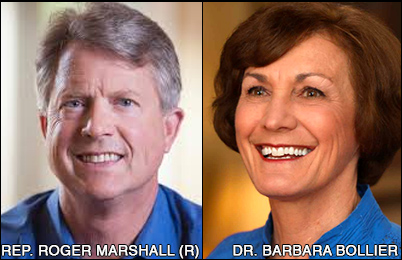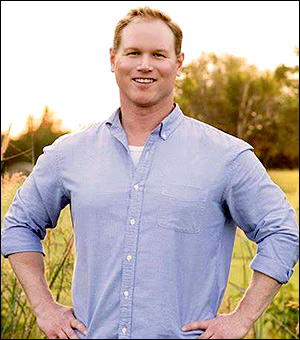By Jim Ellis
Oct. 2, 2020 — One of the most interesting Senate primary races occurred in the Sunflower State of Kansas where Sen. Pat Roberts’ (R) retirement left a contentious Republican primary in his wake, one that saw even Democrats becoming involved. Now, it appears the general election may be beginning to break.
 In 2018, then-Secretary of State Kris Kobach upset Gov. Jeff Colyer in the Republican gubernatorial primary by just over 300 votes statewide to snatch the party nomination. He would then go on to lose to Democratic state Sen. Laura Kelly (D-Topeka) in a race that many Republicans believe Kobach simply gave away due to his poor campaign.
In 2018, then-Secretary of State Kris Kobach upset Gov. Jeff Colyer in the Republican gubernatorial primary by just over 300 votes statewide to snatch the party nomination. He would then go on to lose to Democratic state Sen. Laura Kelly (D-Topeka) in a race that many Republicans believe Kobach simply gave away due to his poor campaign.
Undaunted by this loss and what was regarded as his failed chairmanship of the Trump Administration’s Presidential Advisory Commission on Election Integrity, Kobach entered the 2020 Senate campaign. Republican leaders even including the National Republican Senatorial Committee hierarchy, worried that Kobach would again lose the general election, got behind west Kansas US Rep. Roger Marshall (R-Great Bend). He would eventually prevail in the Aug. 4 primary even though polling showed a close race throughout, usually with Kobach ahead. The final tally was 40-26 percent in Rep. Marshall’s favor.
The strangest part of the primary, however, was Democratic aligned organizations coming into the state in an attempt to actually help Kobach win the Republican nomination. They did this by attacking him as being too conservative, and much too closely aligned with President Trump, negative ads they knew would actually be viewed favorably by the most loyal of Kansas Republican primary voters.
Helping Kobach win the GOP nomination, these Democratic leaders believed, would give their candidate, party switching state Sen. Barbara Bollier (D-Mission Hills), the upper hand in the general election with the chance of capturing what should be a safe Republican Senate seat.
After the primary, the early polling was showing a relatively even race between Rep. Marshall and Sen. Bollier. Traversing a period of having no released polls since immediately after the early August primary, we now see several released surveys conducted within the same general sampling period. Most of these current studies find Marshall beginning to put some distance between he and Bollier.




 March 25, 2018 — Only nearing the end of March in the off-year, already a great deal of early 2020 Senate action has occurred. Thus, it is a good time to begin reviewing all 34 statewide federal races that will adorn next year’s ballot in a three-part series. Today, we look at the first dozen in alphabetical order:
March 25, 2018 — Only nearing the end of March in the off-year, already a great deal of early 2020 Senate action has occurred. Thus, it is a good time to begin reviewing all 34 statewide federal races that will adorn next year’s ballot in a three-part series. Today, we look at the first dozen in alphabetical order: